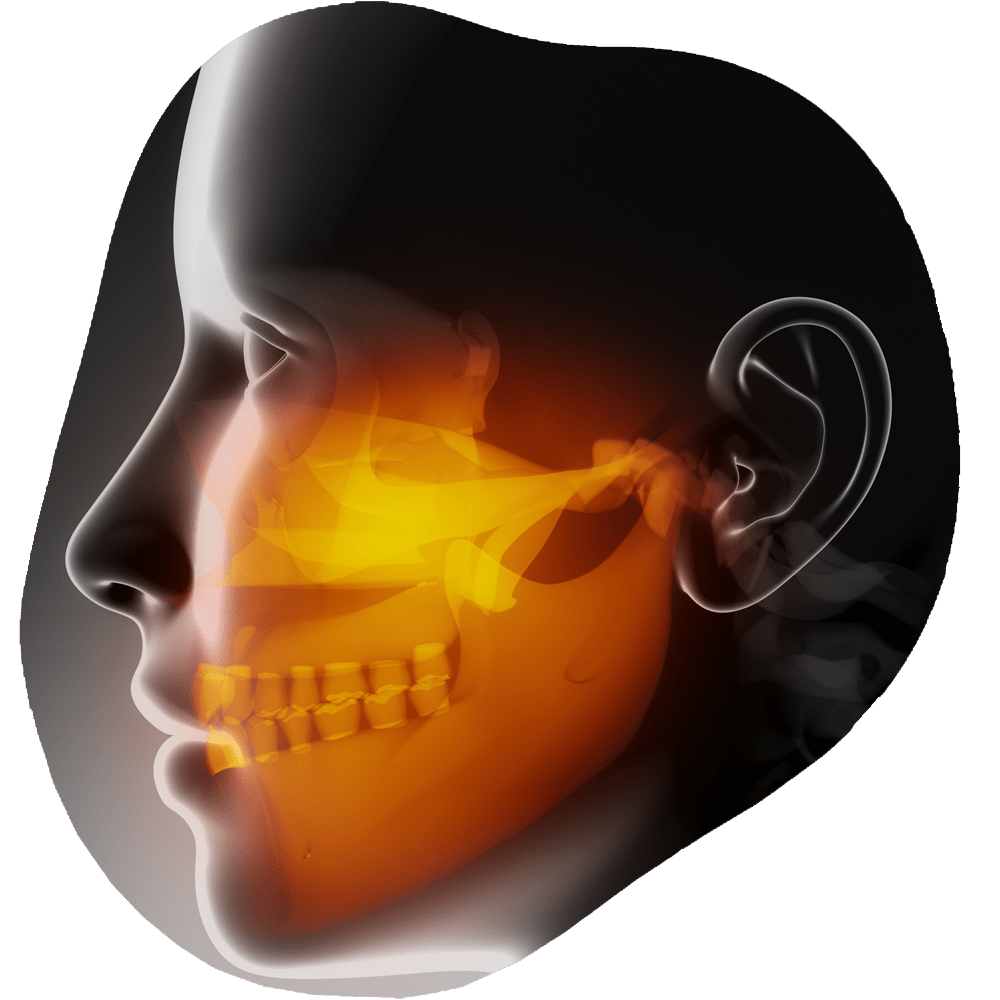For some people, oral pain is the result of teeth decay or gum disease. For others, however, jaw problems can be the cause of significant discomfort. If you are experiencing pain in your jaw, or you often experience a clicking or popping sound when opening and closing your mouth, you might have TMJ or Bruxism. Toothville Family Dentistry is here to help!
Jaw Pain, Bruxism & TMJ
Your NW Calgary Choice for
Jaw Pain, Bruxism and TMJ

What is
Bruxism?
If you notice that you’re waking up with sore jaw muscles or headaches, you may be suffering from bruxism. Simply put, bruxism is when a person grinds their teeth while not chewing. The teeth grind or rub together as the jaw moves forcefully from side to side or back and forth. Often it is done without even realizing it.
Temporomandibular Joint (TMJ) Disorders
Temporomandibular joint disorder (TMD, or “TMJ” for short) is a condition that involves the function of your primary jaw joint. It refers to several problems associated with jaw movement and pain in and around the jaw joints. When your teeth are misaligned, or there is an improper bite position, there is an added strain on the head and neck muscles, joints, and teeth. Over time, this can lead to symptoms like chronic headaches, muscle spasms, jaw pain, and soreness.
- Fills space of missing teeth
- Prevents remaining teeth from drifting out of their correct position
- Maintains facial shape (affected by missing teeth)
- Restores ability to properly chew
- Restores speech and pronunciation
- Restores the aesthetic look of your smile
- Upgrades from a removable partial denture, to a permanent dental appliance
Symptoms of jaw disorders often include:
- You grind or clench your teeth during the day or night (bruxism)
- Popping, clicking, or locking of the jaw
- Pain
- Headaches
- Neck pain
- Muscle pain
- Abnormal tooth wear
- If an abnormality is present in the jaw or the bite of your teeth, it can cause symptoms of TMJ disorder to develop. We will assess the function of your TMJ during your exam to determine whether or not it is functioning properly.

Treatment for
Jaw Pain, Bruxism and TMJ
While there is no single cure for TMJ disorders, including bruxism or the grinding of teeth, it can be addressed through non-surgical methods, such as mouth guards or bite splints.
Mouthguards are custom made of plastic or soft material, to fit over your upper and lower teeth, to minimize the abrasive action of tooth surfaces while you sleep. It does so by reestablishing natural space between your upper and lower teeth and providing a barrier of defense. The mouth guard helps reduce the risk of your teeth cracking or clipping, and it can help minimize strain to your jaw, ultimately helping to prevent damage to teeth and to the temporomandibular joint.
Splints are another option. Some splints fit over the top teeth, some on the bottom teeth. Depending on the particular design, a splint may keep the jaw in a more relaxed position and provide a barrier so that the splint, not the teeth, are damaged.
Your dentist can provide guidance and information to help you best treat your issues.
If you have any of the symptoms of TMJ and you’re not sure where to turn, start with a dental examination at Toothville Family Dentistry. Please don’t suffer needlessly in silence. Give us a call so we can help you through the pain




